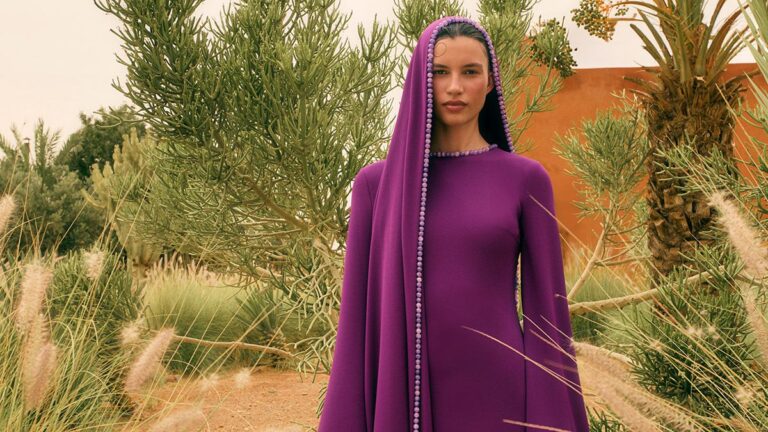The current state of modest fashion is full of contradictions. On one hand, the quiet luxury trend has unintentionally led to more options on the market for those who choose to dress more conservatively, with plenty of Western celebrities and influencers serving as style inspiration — just take Lauren Sanchez Bezos’s buttoned-up coat dress at the Balenciaga couture show, for instance. The Middle Eastern market and its wealthy consumers (who are often Muslim) are also a key target for luxury in 2025, as the region’s solid growth stands out amid challenges in the US and China. At the same time, there’s a growing spotlight on Middle Eastern designers such as Syrian-born, Dubai-based Rami Al Ali, who debuted at couture week this month.
On the other hand, Muslim modest fashion consumers say they’ve noticed a shift in how their style choices are perceived amid growing political tensions. Vogue Business spoke to 10 modest fashion customers from a variety of backgrounds for this story. When asked if they’ve faced discrimination for dressing modestly, there was a stark difference between the responses from Muslim and non-Muslim modest fashion consumers. “Discrimination can sometimes be as simple as a dirty look, and I get that a lot when I am travelling, unfortunately,” says London-based photographer Noor-u-Nisa Khan. She recalls one instance where she was shooting front of house for an international publication at a major Italian brand’s fashion show and was the only photographer who was asked to leave despite having an official badge. “I can’t say for sure it was because of my hijab, but this is the impression I got. It’s honestly a really scary time to be a visible Muslim.”


